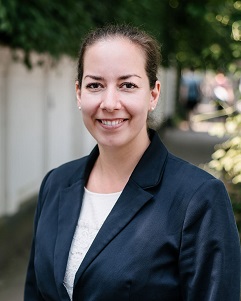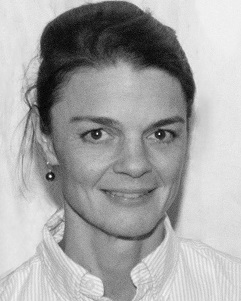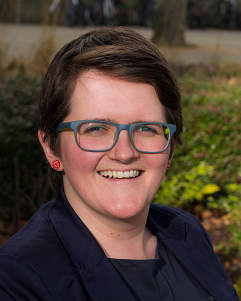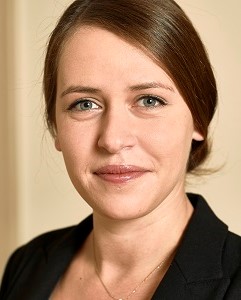Climate Sustainability in the Academic System – the Why and the How
The disruptions caused by the COVID-19 pandemic have drastically pushed us to re-think our working modes and practices, leaving almost no domain unchanged. At the same time, the latest IPCC report leaves no room for doubt about the urgent need to take action against the climate crisis. These two crises have inescapably had an impact within the academic system as well, urging the scientific community to think about the role that the academic system can play in mitigating climate change.
ALLEA’s panel discussion ‘Climate Sustainability in the Academic System – the Why and the How’ will examine these issues following two driving questions: why is it necessary to work towards climate sustainability in the academic system, and how can this be achieved without sacrificing research excellence nor diminishing international collaboration in the process?
The virtual event will offer a preview of the report that the ALLEA Working Group Climate Sustainability in the Academic System is preparing on the topic, followed by a panel discussion. We will address the challenges as well as opportunities that lie within academia’s transition to climate sustainability while also highlighting best-practise examples with an international and interdisciplinary perspective.
Participants are also invited to join one of the three different thematic break-out sessions: Universities & University Networks; Students & Individual Researchers; and Funding Organisations. These sessions will allow those who are interested, or even already engaged, in climate sustainability in academia to meet each other, exchange ideas and best-practise input, and build networks.
Watch event recording
About ALLEA’s Work on Climate Sustainability in the Academic System
ALLEA is working with its Member Academies and international experts to examine the options for moving towards a new sustainable model for the academic system. The working group is led by Die Junge Akademie (German Young Academy) under the chairship of Professor Astrid Eichhorn.
Central themes of this project include the assessment of the climate impact of academia, the travel culture in academia, virtual and physical mobility, best practices for climate sustainable academia, and an outlook on future practice for climate sustainable academia
A final report will be released in Spring 2022.
EVENT DATE
1 February 2022
15:00 – 17:00 CET
TYPE OF EVENT
Online Panel (via Zoom)
Open to the public; registration required
ORGANISERS
CONTACT PERSON
Umida Masharipova
Project and Finance Officer
masharipova@allea.org
SPEAKERS
Professor Astrid Eichhorn
Professor Astrid Eichhorn is an Associate Professor at CP3-Origins, University of Southern Denmark, and an Emmy Noether junior research group leader at the Institute for Theoretical Physics at the University Heidelberg. Previously, she was a Junior Research Fellow at Imperial College and a postdoctoral researcher at the Perimeter Institute for Theoretical Physics. She is also a member of Die Junge Akademie (German Young Academy) and a visiting fellow at the Perimeter Institute for Theoretical Physics. As of 2021, Professor Eichhorn chairs the ALLEA Working Group Climate Sustainability in the Academic System.
Dr Nina Marsh
Dr Nina Marsh is Head of the staff unit Internal Audit & Sustainability Management at the Alexander von Humboldt-Foundation (AvH). As of 2022, she is responsible for implementing the Foundations Sustainability Agenda in which promoting climate sustainability is and will be a central field of action. Nina has over 10 years of expertise in the field of sustainability. In 2018, she received her PhD in Social Neuroscience from the University of Bonn, Germany. Her research in the Neuromodulation of Emotion (NEMO) Lab focusses on investigating the neurobiology of human altruism and how global crises influence the behavioral motives in our social brain. In 2013, she received an MBA with a focus on sustainability management from the FOM University (Germany) and she is a Research Fellow at the Kompetenz Centrum for Corporate Social Responsibility (KCC) at the FOM since 2012. During her studies she was a trainee at the London School of Economics and Political Science (LSE), and the California Institute of Technology (Caltech).
Professor Carly McLachlan
Professor Carly McLachlan is the Director of Tyndall Manchester – an interdisciplinary team working on policy relevant research on climate change based within the School of Engineering at the University of Manchester. Carly is also Associate Director of the ESRC Centre for Climate Change and Social Transformation. Her research interests focus on how stakeholders, including public, engage with energy and sustainability issues and how ‘evidence’ is used within this. Her previous research projects have covered a range of topics, including setting carbon budgets and targets for cities, community energy, stakeholder assessment of carbon capture and storage, tidal energy and future food systems. Her current research is primarily focused on how cities can drive climate action. She has recently been part of the team that produced a Super-Low Carbon Roadmap for the live music sector, working with the band Massive Attack.
Henriette Stoeber
Henriette Stoeber is a Policy Analyst at the European University Association’s Higher Education Policy Unit. Prior to joining EUA, she worked at the Hungarian Rectors’ Conference and spent several years at the German Academic Exchange Service’s (DAAD) National Agency for Higher Education Cooperation. She has also worked in the private sector in the United Kingdom. Henriette holds a Joint Master degree in European Public Policy with distinction from the University of York (UK) and Central European University (Hungary), where she specialised in the field of higher education policy.








